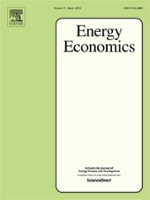We demonstrate the equivalence of various income-based charges when perfect certainty prevails, as well as deviations from equivalence under uncertainty. Some of these equivalences are known but the derivations of others, such as cases for two types of free equity, are not. These equivalences lay the foundation for a proposed Accrued Rent Charge (ARC) as an alternative to Resource Rent Taxes (RRT), both as proposed and implemented. We argue that the ARC may be preferred to the RRT because the timing of returns to investors (owners of reproducible capital) and owners of natural assets coincide. That is, returns accrue to owners of natural assets earlier in time with the ARC relative to the RRT. In addition, we argue that, while both charges are inefficient when there is uncertainty, the ARC may be relatively more administratively and economically efficient. Finally, we use simulations to compare the ARC to the RRT and to standard income charges and discuss the results.
Income equivalence and a proposed resource rent charge
Income equivalence and a proposed resource rent charge
- Michael V. Alexeev, Robert F. Conrad
- Publication Date
2017 - Website
- View publication information
 The College of Arts
The College of Arts